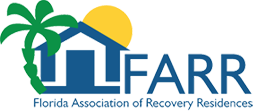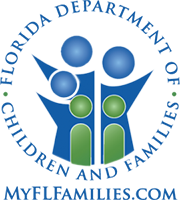What is PTSD?
The American Psychiatric Association (APA) defines Post Traumatic Stress Disorder as “a psychiatric disorder that may occur in people who have witnessed or experienced a traumatic event.” Examples of traumatic events could be physical or sexual abuse, natural disaster, combat, etc. Once thought of as a condition that only affects veterans, research has shown that PTSD can affect anyone, regardless of race, income, or age. The APA estimates that 3.5 million Americans have PTSD, and 1 in 11 people will be diagnosed with it at some point in their life. PTSD consists of intense and distressing thoughts or feelings regarding the traumatic event, even years after it occurred. People may have frequent and vivid dreams or flashbacks related to the traumatic event that can be extremely difficult to endure.
What is PTSD Related Drug Abuse?
Experiencing frequent flashbacks and nightmares is standard for someone who has lived through or witnessed a traumatic event, but what happens when those things become unmanageable? For some, turning to drugs and alcohol is the only way they know how to cope. Drugs and alcohol may temporarily numb the feelings associated with PTSD, however, it can quickly escalate into addiction. PTSD is a risk factor for addiction, so extreme caution should be taken when using substances as it may make symptoms worse or contribute to additional mental health conditions such as anxiety or depression.
What are the Signs of PTSD to Look Out For?
Psychiatrists have determined that there are four types of PTSD symptoms; reactivity, arousal, avoidance, re-living, and cognition/mood. To learn more about how each type presents differently, please see the list below:
Arousal or Reactivity
-
- Frequent surges of anger or aggression
- Trouble sleeping
- Feeling like they are always on edge
- Easily frightened or jumpy
Reliving
-
-
- Nightmares
- Flashbacks that elicit a physical or emotional response, such as tachycardia or diaphoresis
- Thoughts that are scary to the individual experiencing them
-
Avoidance
-
- Has trouble recalling details about the event
- Decreased interest in things they once enjoyed like hobbies or pastimes
- Feeling guilty, anxious, or depressed
- General feeling of numbness in regards to feelings
- Intentionally evading things related to the event
Cognition/Mood Symptoms
-
- Loss of interest in things they once enjoyed
- Feeling guilty or blaming themselves or others for traumatic event
- No self-worth or distorted view of the world
- Difficulty remembering details about the event
Heal from PTSD and Addiction at The Source
The Source Treatment Center, located in Ft. Lauderdale, FL, is certified by the Florida Association of Recovery Residences for being exemplary leaders in the treatment of both addiction and mental health conditions, such as PTSD. The Source understands how mental health can contribute to addiction and believes it is imperative to treat both the addiction and mental health condition to achieve the best results. Each patient has a treatment plan customized to fit their unique life experiences and treatment needs. They provide a variety of different trauma therapies to assist in helping each client process and heal from the trauma they have experienced. Trauma therapies utilized at The Source include Eye Movement Desensitization and Reprocessing (EMDR), Traumatic Incident Reduction (TIR), and Rapid Resolution Therapy (RRT). Each of these therapies have been proven to decrease symptoms associated with PTSD and can help the client get to a place emotionally where they are able to address their addiction without the need to self-medicate. The Source also uses a variety of more traditional therapies to supplement the growth made in trauma therapies and equip clients with healthy coping skills to use when they are struggling. For more information about how The Source can help you or a loved one, please call our treatment specialists at (800) 204-0418 or visit us online at www.thesourcetreatmentcenter.com .


 The Source quite frankly saved my life and got me back on track, never giving giving up on me. When you are thinking about and looking through all of the different places to go for treatment this is the one that should stand out from the rest.
The Source quite frankly saved my life and got me back on track, never giving giving up on me. When you are thinking about and looking through all of the different places to go for treatment this is the one that should stand out from the rest.




























